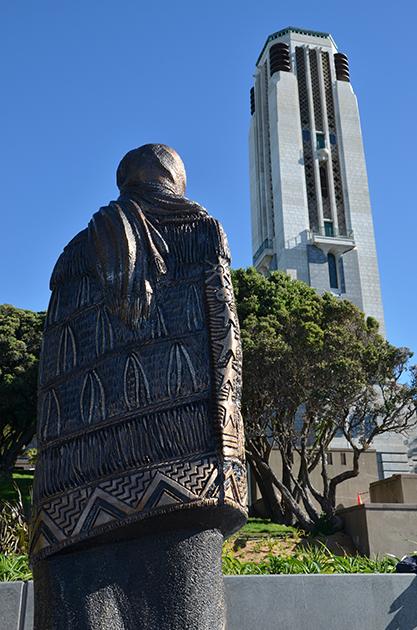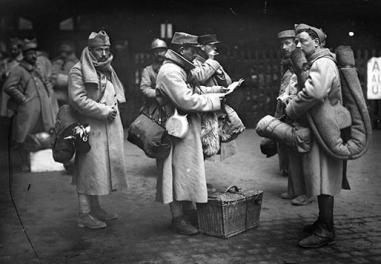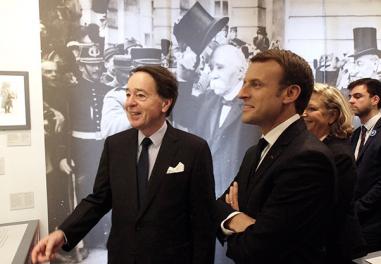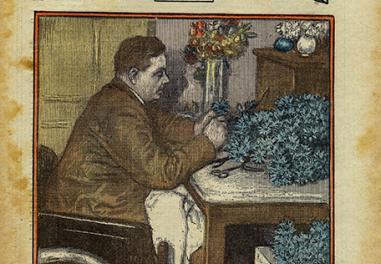Bridget Gee
Bridget Gee is head of external relations at the New Zealand embassy in Paris. In her role, she is in charge of planning Franco-New-Zealand commemorations, especially the 2018 inauguration of the French monument in Wellington.

What role did New Zealanders play in the First World War and what impact did the conflict have on New Zealand?
The First World War was a significant and traumatising event for New Zealand. The human cost of the war was substantial. In total, out of a population of just over a million inhabitants, over 100,000 New Zealand men served in the expeditionary force. Of those, 18,000 died and 41,000 were injured. The centenary of 1918 is first an occasion to pay tribute to these men.
They were driven by a sense of duty, a spirit of justice and deep loyalty to the British Empire when they enlisted in the First World War after the conflict was declared in 1914.
Furthermore, it was the unimaginable experiences they were exposed to during this global conflict that helped the New Zealanders to develop the qualities of endurance and courage, feelings of solidarity and fraternity and a strong sense of dedication. Some dates on which the worst battles in the war were waged have become key touchstones in New Zealand’s national memory, in particular the landings of 1915 in Gallipoli, Turkey, which ended in failure. Regarding the Western front, where New Zealand suffered three-quarters of its losses, we also remember the battles of the Somme, Passchendaele and Messines.
How has 1918 and its memory played a part in forming New Zealand’s national identity?
At the end of the war, New Zealand troops couldn’t return home right away because there was a shortage of ships and some were sent to take part in the occupation of Germany. This had a huge impact on soldiers and their families. Also, when New Zealand signed the Treaty of Versailles it was given a new spot on the international stage.
The First World War had a profound and lasting impact on New Zealand, especially for those who had travelled enormous distances to take part in a war on the other side of the world, as well as those who stayed behind. The effects of the war can still be felt today, not only in our symbols and our commemorative monuments, but also in our politics and our values, in our international friendships and alliances, and in our national consciousness.
Since 2014, the centenary programme of the First World War in New Zealand has encouraged people to explore the way in which these experiences of war have contributed to shaping our national identity. The commemorative actions that have taken place include erecting and renovating monuments, producing music and theatre shows, and devising numerous educational projects in schools.
What will be the key commemorative events in your country in 2018?
On 4 November 2018, New Zealand organised a national ceremony in France to mark the centenary of the liberation of Quesnoy. Just one week before the end of the war, in early November 1918, the New Zealand Division reclaimed the town from the Germans. Since then, Quesnoy and New Zealand have developed special bonds. The town has even named some of its streets and one of its schools after well-known figures and places in New Zealand. New Zealand will, of course, commemorate 11 November 1918, standing alongside France.
Another symbol of the close relationship that unites our two nations and of our shared memory, the French remembrance monument at Pukeahu National War Memorial Park in Wellington will be installed in 2018. This monument was funded by the French Army Ministry through its Heritage, Remembrance and Archives Department (DPMA), which also contributed to its conception, especially by co-organising a French and New Zealand seminar and picking the winning design.
Articles of the review
-
The file

1918, exiting from the war
The Armistice of 11 November 1918 was the catalyst for a complex period during which the withdrawal of four million soldiers was enacted. The first phase consisted of demobilising the troops, in other words organise their repatriation home. For many, above all soldiers sent from the colonies, demobi...Read more -
The event

2018: the Year of Clemenceau
Read more -
The figure

To Bleuets, citizens!
The centenary of the year 1918 will give many the occasion to don the “Bleuet de France” which came about in the wake of the First World War. A symbol of remembrance and solidarity, the bleuet or cornflower still fulfils the same vocation today and provides moral support for the injured an...Read more

